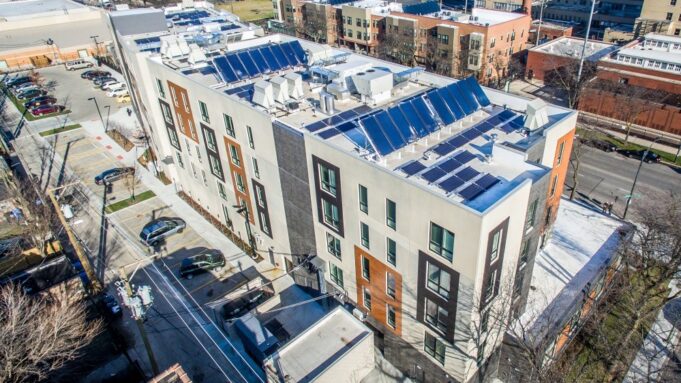We have heard many things being said about solar panels. Things like: It costs too much, it doesn’t work well enough, it is meant for hippies, and more. Let’s keep in mind that more households than ever before are getting solar panels for home use installed. Let’s examine the key facts regarding the advantages and the disadvantages of solar energy.
We have heard many things being said about solar panels. Things like: It costs too much, it doesn’t work well enough, it is meant for hippies, and more. Let’s keep in mind that more households than ever before are getting solar panels for home use installed. Let’s examine the key facts regarding the advantages and the disadvantages of solar energy.
We will answer the foremost question that homeowners are asking themselves: “Is it worth it to install solar panels?”
Solar panels are now more effective, economical, and eco-friendly than ever before. A 26% federal tax credit adds to the attractiveness of investing in solar energy, valid until the end of 2024. Having said this, it may not be beneficial for every household, as factors like location, roof orientation and current electricity usage need to be considered. The best way to ascertain whether you could benefit from a solar panel installation, would be to receive a free consultation.
In most cases and regions in the US, a home solar panel solution offers a good return on investment, making the cost of installation and maintenance well worth it.
To get more information, visit this website: https://solarwerksllc.com/
Advantages of Solar Energy
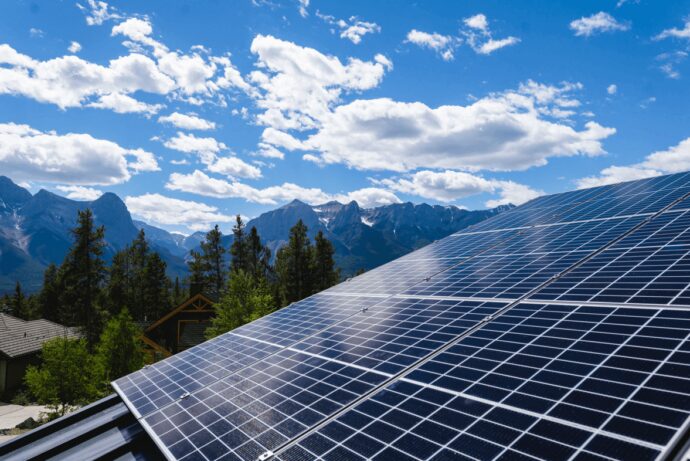
– Solar Panels are a tried-and-trusted invention, dating back 65 years.
– Solar panels function in most climate conditions.
– The cost of solar panels has never been lower.
– Homeowners may be able to profit from excess energy production through net-metering.
– Good-quality solar panels have a lifespan of around 40 years, increasing the return on investment.
– Property resale value may increase as a result of a solar panel installation.
– In the US solar panels for home use are very common.
Disadvantages of Solar Energy
(Note: some of the below disadvantages refer specifically to older or more basic solar energy solutions and no longer apply)
– Home solar panel solutions do not produce energy at night.
– Solar panels for home use are unattractive.
– For many homeowners, a stand-alone solar panel installation is challenging.
– Solar energy production harms the environment.
– Some roof designs are not conducive to optimal solar power production.
– Some of the cheaper solar panels are poor quality and not at all durable.
The Advantages of Solar Energy
1. Solar is a tried-and-tested technology
Science experiments conducted in the late 19th century marked the beginning of photovoltaic (PV) solar energy history. In 1954, the first silicon photovoltaic cell that could transform solar energy into electrical energy for appliances, was developed. By 1983, the world’s photovoltaic production had surpassed 21 megawatts. Given that the US currently has 47.1 gigawatts of total installed solar capacity, it is safe to assume that solar technology is a proven technology. It is clear that this method of clean energy production will continue into the future.
2. Solar Production efficiency in all climates
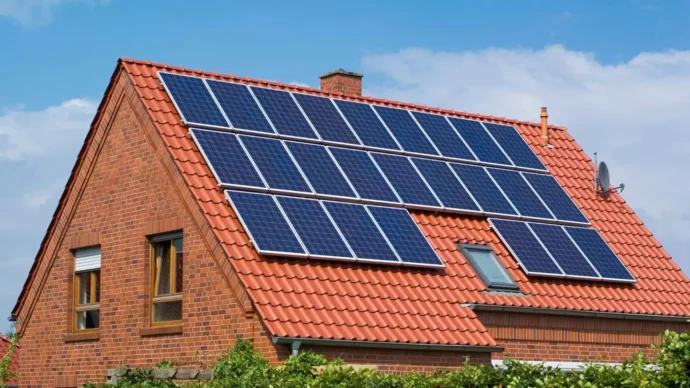
Some people believe that solar energy production is not possible in colder climates. This is not correct. In fact, solar panels are more efficient when it’s colder. Excessive heat can contribute to a lower energy production. What is true, is that the solar panels produce more energy if they receive more hours of direct sunlight. Modern panels, though, are highly efficient and can still produce power in areas with lower light. For instance, in the Seattle area it may be required to install a somewhat larger solar array, compared to the southern California area, to produce the same amount of energy output. The fact remains that solar energy is produced in all areas where there is daylight.
3. Solar energy has never been more affordable
Home solar panel solutions are now much more affordable. Prices have decreased by around 22% since 2015 and this trend will most likely continue. Solar energy is even less expensive than traditional energy in several global markets. Numerous financial incentives are offered, including state policies and tax credits. These incentives contribute to more families having access to solar panels for home solutions. Solar is also more accessible due to a variety of financing options, including no down payment leases and home improvement loans. A solar PV system can be purchased, leased, or financed through many sources. You may be eligible for a 30% federal tax credit or various local incentives if you opt for a solar panel installation in the United States.
4. The entire power grid benefits from solar energy
Globally, excess solar energy can be incorporated and used by the traditional electricity grid. The contributor is often rewarded in various ways, depending on the local policies that apply. An example of this is feed-in tariffs, that exist in countries like Japan and some countries in Europe. In the US, most states have a net-metering billing strategy in place. A net-metering system compensates solar energy users for their excess electricity by crediting them for their grid energy consumption at night.
5. Durability of solar panels
Solar panels are known for their durability. They can keep producing energy even under the toughest weather conditions, including hail storms with hail that measures up to one inch in diameter.
6. Solar panels can increase your home’s market value
A distinct advantage of a home solar panel solution is that it typically raises the resale value of your home. According to data from the online real estate market in 2019, homes with solar panels sold for more compared to similar homes that were without solar energy solutions.
7. Solar energy is a reliable, widely recognized and highly practical alternative energy source
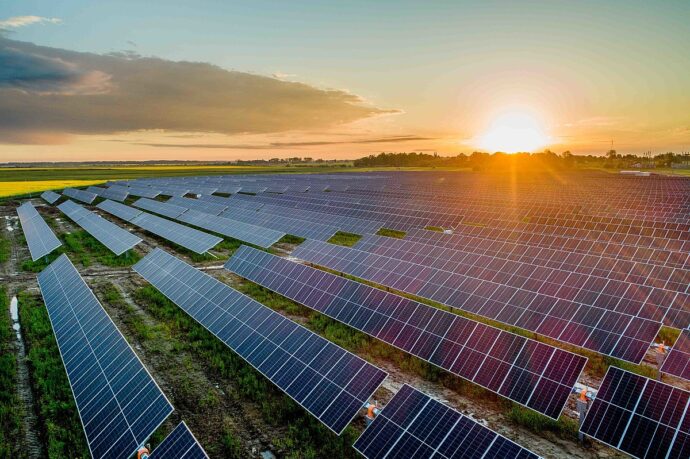
Anyone can benefit from solar power. People from all social and political denominations support it. Homeowners from all walks of life are continuously installing solar energy systems. Solar energy is financed by most mainstream banks. Both Republican and Democrats have worked to advance progressive legislation at state level. Solar energy has proven environmental advantages but has gained more popularity through the cost savings solar owners have benefitted from.
Solar Energy Disadvantages
1. Solar does not produce energy during the night
Some solar energy enthusiasts may consider converting to solar energy to enable them to live fully off the grid. For the majority of home solar panel owners this is not practical. Generally solar energy is consumed immediately, and excess energy is transferred back into the grid or stored in batteries. At night, or when sunlight is limited, solar homes must rely on the power grid or make use of battery stored energy.
2. Solar Panels for home use are unattractive
This was undoubtedly true of dated panels that protruded far above the roof and had enormous silver frames. The solar panels of today, however, are sleek and far more simplistic in design. Solar panels for home use are generally installed flush with the roof, merge with many types of roofs and sometimes even totally replace the roof. Homeowners can choose in a wide variety of colors that complement their home’s aesthetic, whilst remaining practical and producing clean energy. In some cases, where a home has a big roof area, or multiple roofs with ample sun exposure, a solar panel installation can be carried out, yet be completely invisible from the road.
3. Solar panels must be installed by professionals
Home solar panel solutions can perhaps be installed by an experienced and skilled homeowner, but for the majority of households a professional solar panel installer is brought in. For some, the necessity of calling in professional solar panel installers may be viewed as a disadvantage. There are however some compelling reasons to avoid handling the installation on your own. Professional solar panel installers will take care of the design, technology and simplify the installation process. Another good reason involves the warranty. Many solar panel warranties do not cover any claims that apply to solar panels that were not properly installed. Furthermore, homeowners could be charged extra warranty fees for the removal of the defective panels that were not installed by licensed solar panel installers and the subsequent reinstallation of replacement panels. These fees may apply even if the defect was not due to the self-installation.
4. Solar panels do not fit on my roof
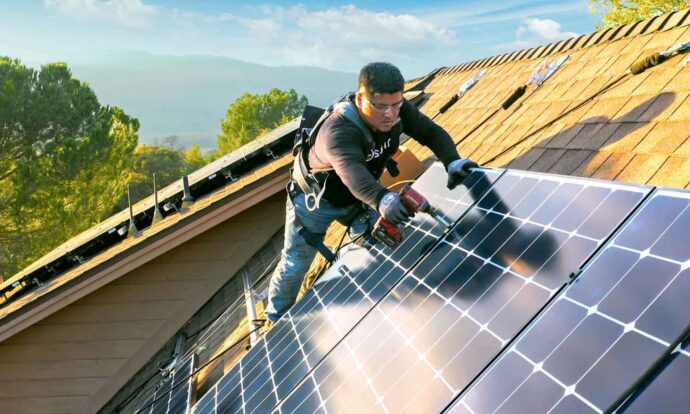
The sun exposure and structure of a roof will influence the ability to install solar panels. It is important that your roof is exposed to ample sunlight to get the most out of your panels. Professional solar energy specialists and solar panel installers will be able to give you the best advice in terms of solar solutions that are a good fit for your home. Ask them for a free consultation.
5. Solar energy is not eco-friendly
As with most things, solar panels need to go through a manufacturing process. This process involves chemicals, transportation and more. All these factors combined have an impact on the environment, which is why some people believe solar panels are harmful to nature. It is therefore good to know that solar is one of the least polluting energy producing methods. When comparing solar panels to other types of energy that is generated, they are significantly more eco-friendly. This is mainly due to their enduring efficiency in producing energy.
6. All solar panels are not created equal
True, there are indeed a variety of panels available on the market with varying degrees of effectiveness, durability, reliability, performance, and design. However, before choosing solar panels for home use, homeowners have access to so much information through various platforms. This enables them to investigate different home solar panel product options and solar panel installation companies. It is important to choose the product that is efficient and durable to maximize energy output and long-term cost savings. It is advisable to invest in high-quality solar panels. Every situation is unique, and the best solution would depend on the location, the structure of the house, energy requirements, local solar incentives, and the accessibility of a licensed solar panel installer. It is clear that homeowners who have decided on a solar panel installation for their home, profit significantly from their decision through energy cost savings. Additionally, the environmental advantages of clean, renewable energy contribute to a decrease in carbon emission, which is beneficial for the environment. Anything that helps homeowners save money, while also preserving the environment is worth investigating and investing in.

